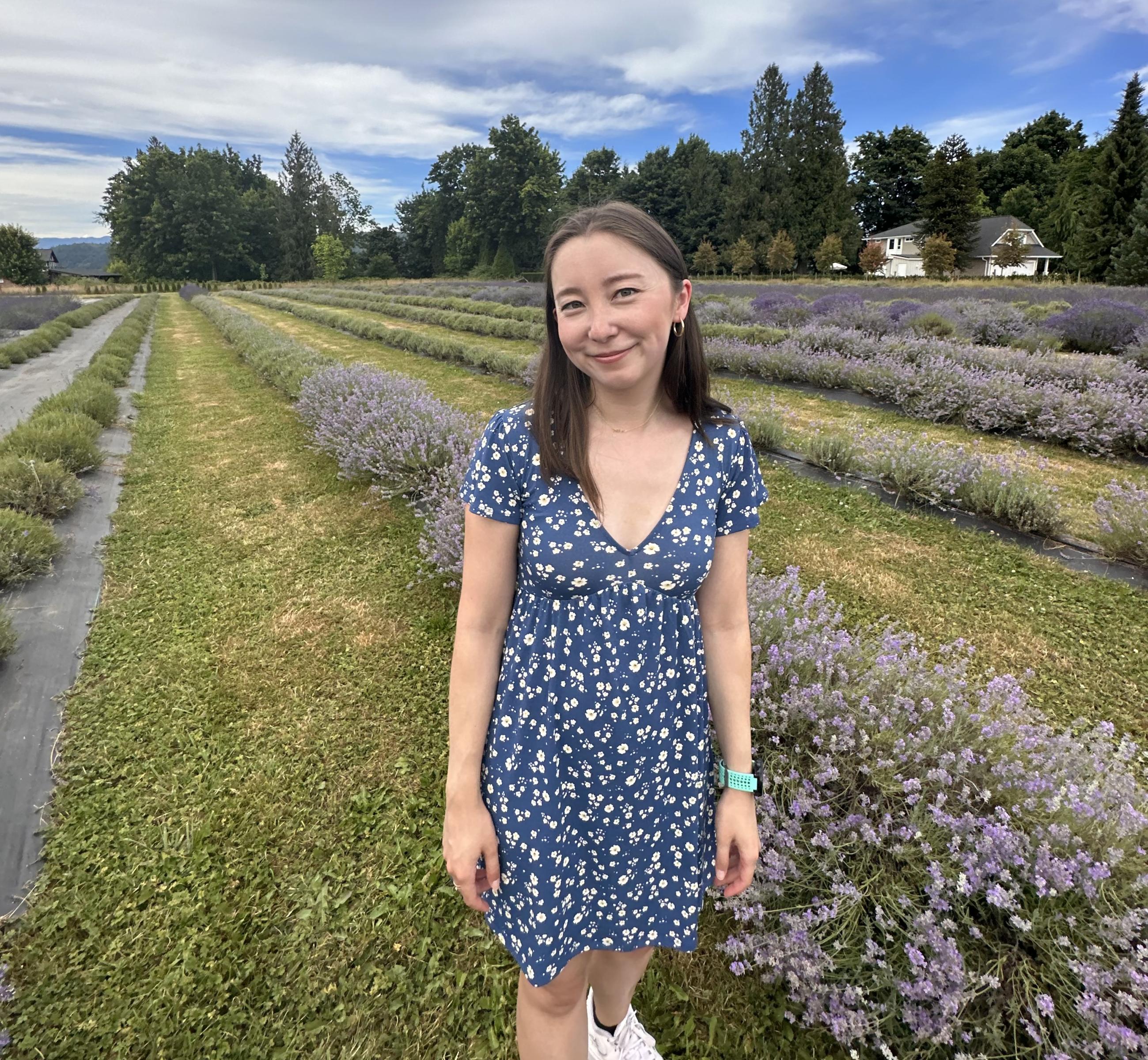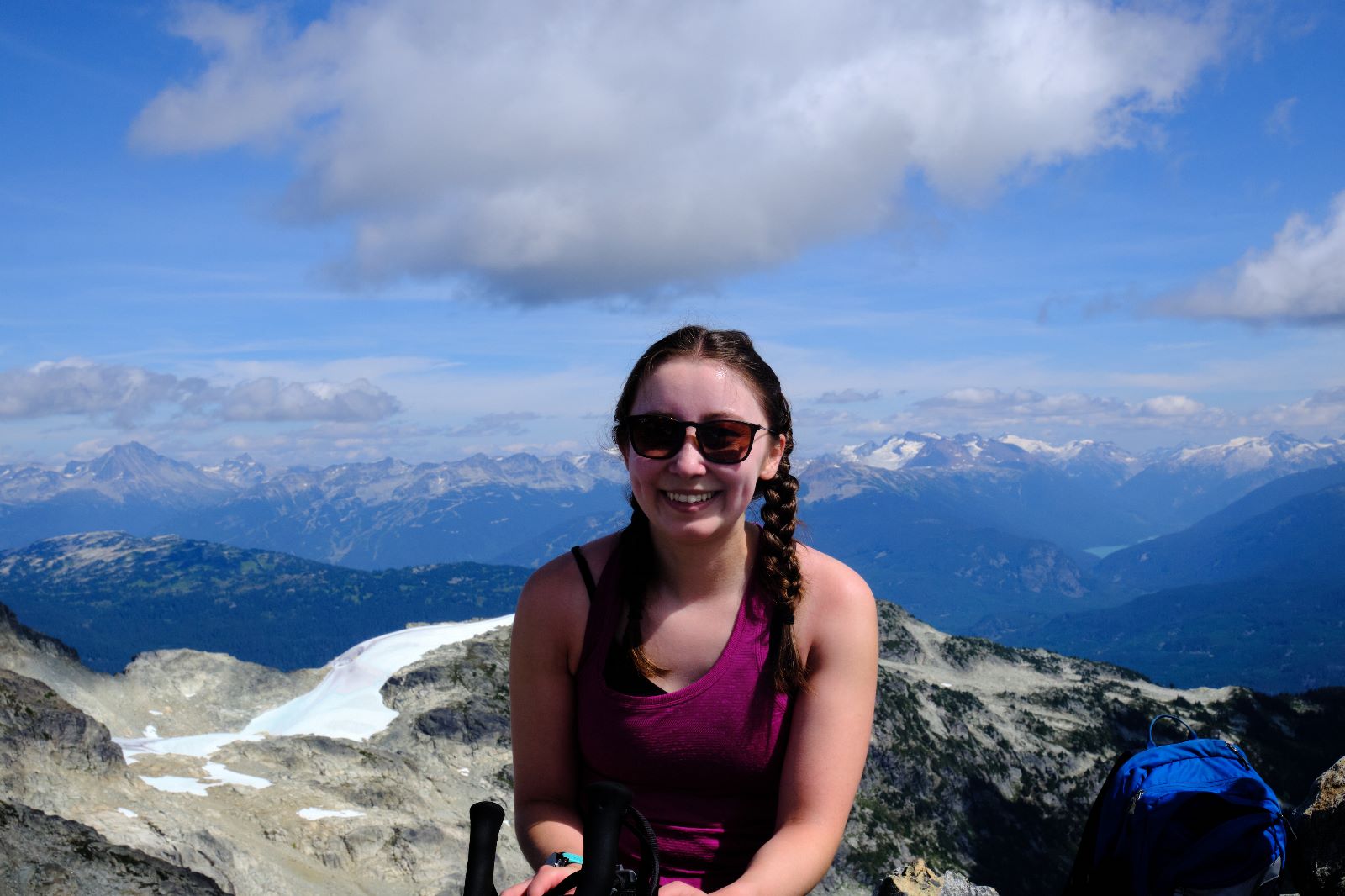Julia Nakamura
Being a Public Scholar means that I get to join an incredible network of researchers who meaningfully conduct, disseminate, and translate their research outside of academia. I also have the privilege of working with organizations like the Canadian Red Cross to translate volunteering research to real-world contexts and to enhance accessibility, equity, and benefits of volunteering across Canada.
Research description
My overarching goal is to build a program of research that informs policy and intervention work to improve population health and well-being. I integrate theories and perspectives from health psychology, epidemiology, gerontology, biostatistics, and translational science to identify, understand, and intervene upon the dimensions of prosocial behaviors (e.g., volunteering, charitable giving, helping behaviours) that improve health and well-being.
What does being a Public Scholar mean?
Being a Public Scholar means that I get to join an incredible network of researchers who meaningfully conduct, disseminate, and translate their research outside of academia. I also have the privilege of working with organizations like the Canadian Red Cross to translate volunteering research to real-world contexts and to enhance accessibility, equity, and benefits of volunteering across Canada.
In what ways do you think the PhD experience can be re-imagined with this Initiative?
The PhD experience can be re-imagined to have more real-world impact with the Public Scholars Initiative. By allowing PhD students to co-create programs of research with organizations outside of academia, engage across sectors to contribute to the public good, embrace broadened concepts of scholarship, and network with an interdisciplinary group of scholars, the PhD experience can look entirely different with the Public Scholars Initiative!
How do you envision connecting your PhD work with broader career possibilities?
My ultimate goal is to develop a program of research that engages heavily in co-creation and translational science with non-academic partners. The PSI will provide opportunities to develop a network of researchers, leaders, and organizations that I hope to continue collaborating with after completing my program.
How does your research engage with the larger community and social partners?
The most exciting aspect of this work is the collaborative, mutually beneficial nature of it. I am privileged to get to work with the Canadian Red Cross, who brings years of impressive and national experience coordinating volunteer efforts across Canada. Through ongoing conversations with them, we have identified potential areas of investigation, improvement, and better utilization of resources in their volunteer programming, and we are excited to help the Canadian Red Cross better achieve their goals nationwide.
Why did you decide to pursue a graduate degree?
I developed an interest in Psychology throughout my undergraduate degree, and specifically became enthusiastic about research and teaching. Pursuing a doctorate in Psychology was the perfect next step to continue research and prepare myself for a career of research and teaching in Psychology!
Why did you choose to come to British Columbia and study at UBC?
I was very interested in the work of my prospective supervisor at UBC, as well as the research focus of our Health Psychology Area more broadly which has a lot of overlapping (yet original and distinct) work that creates opportunities for collaboration and learning from others’ methods/approaches. UBC has one of the best psychology departments in the world and maintains a friendly and generous environment for graduate students!
What is it specifically that your program offers that attracted you?
The Psychology Department at UBC offers a strong research emphasis and encourages collaboration between labs, which is in line with my career goals (research in psychology) and plans for graduate studies. As a bonus, Vancouver is an amazing place to live!
For you, what was the best surprise about graduate life, about UBC or life in Vancouver?
The beautiful summer weather and all of the great places to run and spend time in nature – Vancouver is stunning!
What aspects of your life or career before now have best prepared you for your UBC graduate program?
I worked in several labs with diverse interests as an undergraduate and received excellent training and mentoring in all of them. Undergraduate research (particularly, doing a thesis project with Dr. Kate Kuhlman and Dr. Julienne Bower) was what best prepared me for a research-focused graduate program. I also spent time as an undergraduate engaging in related work (e.g., volunteering, teaching, peer coaching/counselling) to help me narrow and refine my interests.
What advice do you have for new graduate students?
I would advise establishing routines as early as possible (ideally at the start of grad school) to maintain a good balance of productivity and self-care! It is easy to get caught up in work and deadlines, but keeping an emphasis on physical/mental health is just as important. There is always something you could be working on, so if you don’t intentionally schedule/plan time off, it won’t happen. There is more to life than graduate school!







